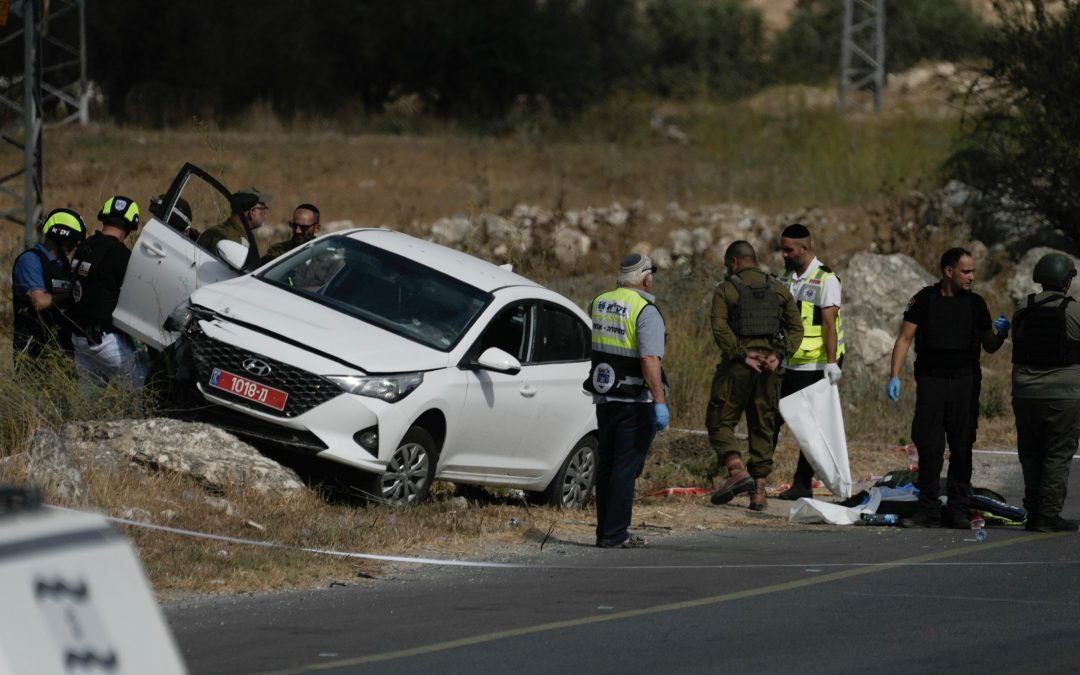Exploring the Root Causes of Israeli-Palestinian Violence: Towards Sustainable Solutions
In recent years, the Israeli-Palestinian conflict has once again reached alarming levels of violent incidents. This cycle of violence was tragically exemplified by the terrorist attack that claimed the lives of several Israeli police officers. Although this incident was an isolated event, it reflects the underlying themes and concepts driving the conflict, impeding any chances for lasting peace. To find innovative solutions and ideas, it is vital to delve deeper into the root causes fueling the Israeli-Palestinian violence.
The Unresolved Israeli-Palestinian Conflict
The Israeli-Palestinian conflict dates back decades, rooted in historical, religious, and territorial disputes. Palestinians and Israelis both harbor deep grievances and aspirations for self-determination. The intensity of the ongoing struggle has led to cycles of violence and retaliatory attacks, trapping generations in a seemingly unending conflict.
Israel’s military raids on Palestinian cities and Palestinian resistance often exacerbate the already tense situation. The loss of innocent lives on both sides further fuels resentment and perpetuates the cycle of violence, creating a breeding ground for extremist ideologies.
Miscommunication and Dehumanization
One of the key underlying factors behind the Israeli-Palestinian conflict is miscommunication and dehumanization. Both societies suffer from limited interaction and the inability to empathize with each other’s struggles. This lack of understanding contributes to an environment where biases, stereotypes, and prejudices thrive.
In many instances, both sides only receive information that aligns with their own narratives, deepening divisions and reinforcing animosity. Breaking this cycle demands innovative approaches that foster meaningful dialogue, promote cultural exchange, and encourage empathy to overcome ingrained prejudices.
Building Trust through Education and Economic Opportunities
Innovative solutions must address the underlying socio-economic disparities that fuel the conflict. Greater investment in education, employment opportunities, and shared economic projects can help foster understanding and build trust between Israelis and Palestinians. By providing avenues for personal growth and cooperation, these initiatives have the potential to reduce violence and improve overall societal well-being.
Moreover, educational reform is crucial for cultivating a future generation that aims for peace and coexistence. Through inclusive curricula that emphasize understanding, tolerance, and mutual respect, we can lay the foundation for a more harmonious future between Palestinians and Israelis.
Promoting International Mediation and Dialogue
International mediation and dialogue play a pivotal role in ensuring a just and sustainable resolution to the Israeli-Palestinian conflict. The international community should actively engage in negotiations, urging both parties to find common ground and commit to peaceful coexistence.
Multilateral discussions that consider the aspirations and grievances of all involved parties are essential. This inclusive approach can foster a sense of ownership over the peace process, discouraging extremist elements from exploiting the situation for their own gain.
It is only through embracing empathy, fostering economic cooperation, investing in education, and promoting international dialogue that we can hope to break the cycle of violence and achieve sustainable peace between Palestinians and Israelis.
The tragic incident that claimed the lives of Israeli police officers further highlights the urgency for innovative solutions. By addressing the root causes of the Israeli-Palestinian conflict, we have the opportunity to create a future where violence becomes obsolete, and the Israeli and Palestinian people can coexist in peace.
